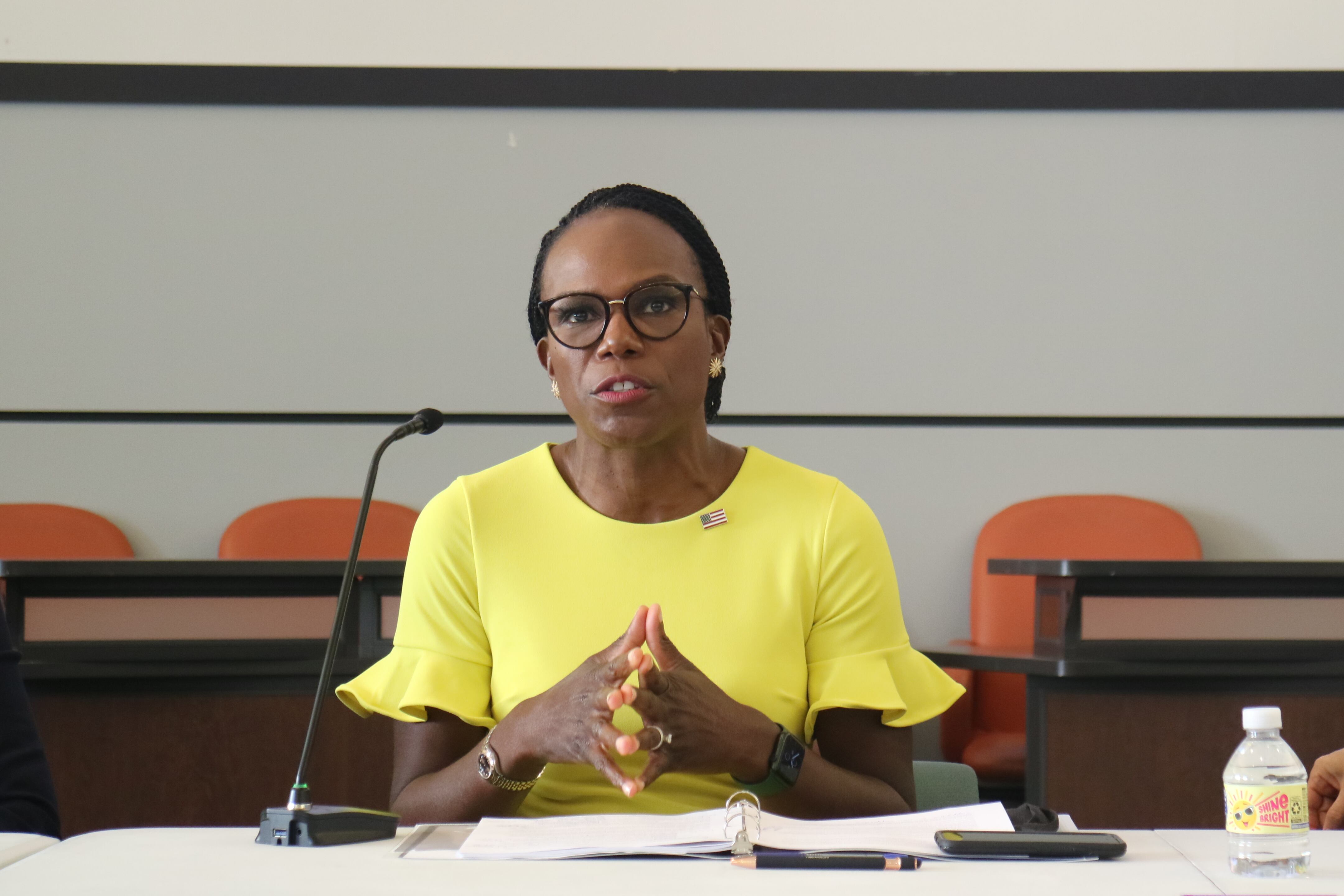Philadelphia’s children need a stronger public health care system, more robust government benefits, and more funding for school staff to counteract the long-term impacts of the pandemic, an advocacy group declared Monday in a new report.
Children First’s “COVID’s Impact on Philadelphia Children: The Case for an Ambitious Rebound,” reveals the setbacks Philadelphia students endured since schools were forced to shut down in-person classes in 2020, and recommended steps to remedy the damage that fell mostly on Black and Latino students.
The group, formerly known as Public Citizens for Children and Youth, also mentioned in its presentation that the pandemic’s negative effects have ranged from an increase in youth seeking suicide prevention to a spike in gun violence, which remains the number one cause of death for children over 15 in the city.
Federal policy did help lift over 16,000 children out of poverty in the city in the first year of the shutdown of in-person learning, the group noted. And Philadelphia families are vaccinating their children at a faster rate than other parents across the state.
But to counteract COVID’s effects and shield children from the next public health crisis, officials must improve the quality and accessibility of things like behavioral health services and child care, Children First said.
“COVID was a calamity and affected every one of our lives,” said Donna Cooper, the group’s executive director. “But our children continue to face persistent structural challenges to their safety, their physical well being and their mental health and well being.”
Child care, behavioral health are key
The Children First report highlighted several issues that caused acute problems for the city’s children, as well as recommendations to ameliorate the problems in light of COVID. In several instances, the group’s proposals call for government officials to prioritize children when deciding where to spend public money.
For example, as of September 2021, there were approximately 1,500 fewer child care workers in Philadelphia than before the pandemic; nearly a year ago, child care staff were earning 19% less than employees at big box retail stores or fast food franchises, according to the U.S. Bureau of Labor Statistics.
That wage gap and other factors, including the prohibitive cost for many families, led many child care centers to shut their doors.
Children First said that in response, federal and state lawmakers should provide the funding and resources necessary to make child care and pre-kindergarten affordable and accessible to more families, and to ensure families aren’t shut out of those services by inflation.
The group also wants people to pressure the federal government to reenact the expanded Child Care Tax Credit.
Children First also pointed to two K-12 issues, the teaching workforce and internet access, where more can and must be done.
The district stopped in-person classes in 2020 between March and June, and virtual learning remained in place for much of the 2020-21 school year. But district schools had neither the inventory of computers nor the technological capacity to quickly make the shift to virtual learning.
And according to a Pew Research study, about one in three students in the district — where 74% of students are from low-income households and 86% are students of color — did not have high-speed internet access, a key factor for the viability of virtual learning.
Philadelphia made some strides in providing more students with internet access during the pandemic, such as through the PHLConnectED program. But interruptions in learning driven by internet-related problems contributed to children’s academic struggles.
Children First wants state lawmakers to provide sufficient funds so that every school in the city can provide every student with a computer and, where necessary, free or affordable internet access.
But despite these efforts, the interruption of learning exacerbated the educational gaps across school districts in the state, hitting Philadelphia hard.
Once federal COVID relief funding for schools is used up in the next several years, the group said Philadelphia will likely have to boost class sizes because the district won’t have sufficient funds to hire new teachers, given the shortage.
To help undo COVID’s impact on the teaching profession, state lawmakers should provide enough funding so that each school can afford to hire an ample number of teachers, the report said.
Children First also offered proposals related to children’s mental well-being, as well as the city’s overall approach to public health issues.
For example, the city must work to close racial and economic gaps in behavioral health services
In addition, Children First said those officials should find ways to offer preventative mental health resources, mental health first aid, and therapeutic support for children in their communities.
The group said the city should craft a strategy to make sure children are better protected the next time a health emergency like the pandemic strikes. And Children First said the city must track COVID’s continuing impact on children and work to ensure they are vaccinated against COVID and other diseases.
As part of Monday’s presentation of its report, Children First invited a panel of leaders and students, including Philadelphia Superintendent Tony Watlington and Dr. Ala Stanford, founder of the Black Doctors COVID-19 Consortium, to discuss what to do next.
“The biggest lesson for the children, I’ll say, is to come through on the other side [of the pandemic], as a senior as a junior, you acquired skills that you didn’t even know you had that are going to propel you stronger and further than many,” Stanford said.
Watlington said he thinks technology could be a key factor in any turnaround for students. “It’s important for us to realize that we have this once in a lifetime opportunity to totally transform how we use technology as a learning tool,” he said.
Bureau Chief Johann Calhoun covers K-12 schools and early childhood education in Philadelphia. He oversees Chalkbeat Philadelphia’s education coverage. Contact Johann at jcalhoun@chalkbeat.org.





